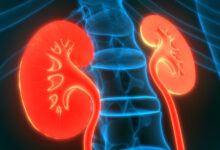Coughing Up Blood

Bleeding while coughing is called haemoptysis in the medical literature. In the case of haemoptysis, also called bloody sputum, individuals experience anxiety because of serious problems, but there can be many reasons for coughing up blood, ranging from simple to serious.
At this point, irritation of the throat is also a cause, while some lung diseases can be a potential cause of haemoptysis. In the case of a bloody cough, it should be determined whether the blood originates from the gums or mouth sores. In this article, information about the causes of bloody cough will be shared, as well as the treatment process will be mentioned.
Nose bleeding
In the case of nosebleeds, especially in the sleep state, the blood may pass to the back of the nose. At this point, the person can swallow the blood first and then cough it out. If the bleeding is very serious, the blood that goes to the throat can also be coughed up. Nosebleeds usually go away on their own, but if there is a condition that lasts more than half an hour, a doctor should be consulted.
Respiratory Tract Infections
In many respiratory tract infections, such as pneumonia known as pneumonia, bronchitis, an infection of the respiratory tract, and laryngitis caused by an infection of the larynx, the individual may cough up blood. These reasons are among the most common causes of haemoptysis. In addition to haemoptysis, which are among the symptoms of these diseases, there are also complaints such as fatigue and fever.
Different treatment options are offered in the recovery of these diseases. While viral bronchitis usually heals on its own, bacterial bronchitis that occurs because the pathogen is caused by bacteria may require antibiotic treatment.
Chronic Obstructive Pulmonary Disease (COPD)
COPD, a disease that makes it difficult for the lungs to transmit gas, is a disease that damages the air sacs in the lungs and causes conditions such as asthma, bronchitis or emphysema. The incidence is higher in smokers with increasing age. It has slowly progressive findings and is listed below.
- Shortness of Breath
- Chronic Cough
- Tightness feeling in The Chest
In chronic obstructive pulmonary disease, for which there is no clear treatment, the findings may worsen over time. Making changes such as breathing therapy, doing sports, quitting smoking in lifestyle, and taking supportive treatment with drugs can improve the quality of life in COPD.
Asthma
Individuals with asthma may experience haemoptysis during or after an attack. According to scientific studies, the number of asthma patients in people with bloody cough is not negligible. Other symptoms of asthma include difficulty in breathing, coughing and wheezing.
As a result of the exacerbation of these symptoms, asthma attacks may occur. In asthma, for which there is no clear cure, some treatments are applied to reduce symptoms. Exercising is a great support element in the treatment of asthma.
Tuberculosis
Tuberculosis, also known as tuberculosis, is a lung infection. This infection can be life-threatening and spread to different parts of the body. If the amount of blood in the saliva is more than a few droplets, it is more possible to suspect tuberculosis. Tuberculosis, which is one of the leading causes of haemoptysis on a global scale, is an infectious disease, and its symptoms are listed below.
- chronic cough
- weight loss
- Sweating at night
- Seeing blood in cough
More than one antibiotic is usually used in the treatment process. The basis of these antibiotics is isoniazid. If the disease is severe, supportive treatments are used.
Cancer
In many types of cancer, including lung cancer, bloody sputum (haemoptysis) can be seen. Bloody cough can be seen with a high probability of lung cancer in people who are over the age of forty and who smoke heavily. Symptoms of lung cancer include weight loss of unknown origin, wheezing, respiratory distress, coughing up blood, chronic cough, and fatigue.
In the treatment process, depending on the person and the characteristics of the tumour, surgical procedure, chemotherapy, radiotherapy, immunotherapy and targeted smart drugs can be used.
Vascular Problems
Although not very common, damage to the lungs or blood vessels in different parts of the body can cause an individual’s haemoptysis. In the case of an embolism, which occurs when a blood clot reaches the lung at this point, the individual may cough up blood.
Individuals who have had problems with coagulation in the past, those who sit for a long time, have recently undergone an operation, and those who smoke are riskier in terms of defence. Problems with the blood vessel can create serious conditions. At this point, it is essential to apply to a health institution urgently.
When Should We Apply to a Physician?
If the amount of blood from the bloody cough is small, it does not qualify as an emergency, but the individual may be considered to have an infection or other illness. For this reason, the Physician should be consulted.
If there is difficulty in breathing, if there is a coagulation-related condition, if there is pain in the chest and if there is a problem with consciousness, a medical centre should be sought immediately. Generally, if the underlying cause of coughing up blood is known, the treatment process is shaped accordingly. Therefore, consulting a doctor it is necessary.








